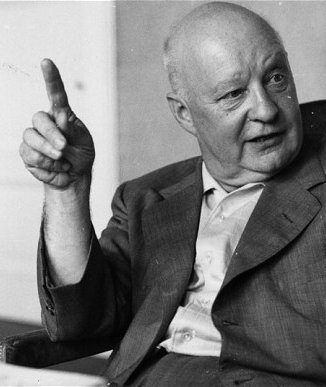Program
Suite Nr. 2 op. 24 (from the movie “Niemandsland”)
PAUL HINDEMITH:bio
Der Schwanendreher (The Swan Turner) – concerto for viola and orchestra
.…
ERWIN SCHULHOFF:
Suite for Chamber Orchestra, Op. 37
KURT WEILL:
Die Seeräuber Jenny (from “The Threepenny Opera”)
Bilbao Song (from “The Happy End”)
Suite Panaméenne
Ballade vom ertrunkenen Mädchen (from “Das Berliner Requiem“)
Was die Herren Matrosen sagen (from the “Happy End”)
The event is about 2.0 hours long.
About the Concert
Viktor Trivas’s allegoric anti-war film from 1931, entitled No Man’s Land, is about five people of different nationalities meeting by happenstance, being stuck together and cooperating at the outbreak of the First World War. Eisler composed a four-movement suite from his own movie score. The Prelude is followed by a Capriccio based on Jewish melodies and, after the Andante, the piece is concluded by a March.
The three movements of Der Schwanendreher by virtuoso violist Hindemith are each based on an old German folk song, juxtaposing the values of the past with the current hostilities at the time. The title refers on the one hand to a swan-turning cook’s assistant, and, on the other, to a wandering minstrel. The orchestral parts of the neo-classicist composition are made special by the lack of violins and violas.
Suite in the New Style – this was the original title of Schulhoff’s jazz suite for orchestra composed in 1921. The jazz pianist, who started his career as a Wunderkind, introduces his six-movement piece with a nonsense poem. The opening Ragtime can be interpreted as a parody, Valse Boston is also called the hesitant waltz, Tango is less sensual than usual, Shimmy was named after the chemise of American singer-actress Gilda Grey, which became visible when she danced, Step is a piece of all-percussion music of less than a minute and Jazz is the syncopated finale of the composition.
The concert will be concluded with popular songs by Kurt Weill. First up will be one of the most famous songs, based on François Villon’s text, of the 1928 The Threepenny Opera. which was banned by the Nazis, in which Jenny, a maid, is plotting a revenge fantasy with pirates.
A year after the sweeping success of the play, Weill was commissioned for a similar work. Although Happy End failed, the Bilbao Song, the celebration of gang members at the beginning of the play, soon became a cabaret standard. The murky past of the play’s protagonist, Salvation Army lieutenant Lilian Holiday, will be disclosed in The Sailor’s Tango at the end of the program.
Panamanian Suite, composed in 1934 for Jacques Deval’s novel, Marie Galante, also includes tangos, as well as a march and a foxtrot. The dance movements will be counterbalanced by an excerpt with an intimate accompaniment of the 1928 Berlin Requiem paying tribute to the forgotten dead, the victims of wars and crimes.

Iván Fischer
conductor, Music Director
His focus is always the music, and to this end, he has developed several new concert formats and reformed the structure and working method of the symphony orchestra. In the mid-1980s he founded the Budapest Festival Orchestra, where he has since introduced and established numerous innovations. He envisions a pool of musicians serving the community in various combinations and musical styles.
His work as Music Director of the Budapest Festival Orchestra has developed into one of the greatest musical success stories of the last 30 years. With international tours and a series of recordings for Philips Classics and Channel Classics, he has earned a reputation as one of the world’s most celebrated orchestral conductors, for whom tradition and innovation go hand in hand.
He has founded a number of festivals, including the Budapest Mahlerfest, the Bridging Europe festival and the Vicenza Opera Festival. The World Economic Forum presented him with the Crystal Award for his achievements in fostering international cultural relations.
He was principal conductor of the National Symphony Orchestra in Washington, the Opéra National de Lyon and the Konzerthausorchester Berlin, the latter appointing him Conductor Laureate. The Royal Concertgebouw Orchestra named him Honorary Guest Conductor following many decades of working together. He is a frequent guest conductor of the Berlin Philharmonic, the Bavarian Radio Symphony Orchestra and New York Philharmonic Orchestra.
Iván Fischer studied the piano, violin and cello in Budapest, before joining the legendary conducting class of Hans Swarowsky in Vienna. Having spent two years as assistant to Nikolaus Harnoncourt, he then launched his international career as winner of the Rupert Foundation conducting competition in London.
After various guest appearances at international opera houses, he founded the Ivan Fischer Opera Company. His staging always sets as its goal an organic unity between music and theatre. IFOC productions, which often spatially connect the instrumentalists and singers, have been received with great acclaim in recent years in New York, Edinburgh, Abu Dhabi, Berlin, Geneva and Budapest.
Iván Fischer has been active as a composer since 2004, writing mostly vocal music with instrumental ensembles. His opera The Red Heifer made headlines across the world; the children’s opera The Gruffalo enjoyed numerous revivals in Berlin; his most frequently performed work, “Eine Deutsch-Jiddische Kantate” has been performed and recorded in several countries.
Iván Fischer is founder of the Hungarian Mahler Society and patron of the British Kodály Academy. The president of the Republic of Hungary awarded him the Gold Medal, and the French government honored him as Chevalier des Arts et des Lettres. In 2006 he was decorated with the Hungarian Kossuth Prize, in 2011 with the Royal Philharmonic Society Music Award and the Dutch Ovatie Prize, and in 2013 he was named an honorary member of the Royal Academy of Music in London.
Iván Fischer is honorary citizen of Budapest.

Nora Fischer
(mezzo-soprano)
Nora Fischer is challenging the way we listen to the voice. The Amsterdam- based singer is renowned for her adventurous approach to live performance and her creative projects fusing classical and contemporary repertoire. This can range from traditional concert programmes to genre-defying collaborations – such as her debut album HUSH, which was released on Deutsche Grammophon in April 2018, and her work with Yo-Yo Ma’s legendary Silkroad.
Using her voice as a versatile instrument, Nora’s repertoire ranges from Monteverdi to the many compositions that have been written for her in the present day. Her “affinity with experimental classical styles and sharp dramatic instincts” (New York Times) have led to many collaborations with leading contemporary composers, including Osvaldo Golijov, David Lang & Michel van der Aa. During the 2017/18 season, Nora signed with Universal Music and was nominated by the Concertgebouw to perform in major concert halls across Europe for the ECHO Rising Stars Tour.
Nora’s unique approach has taken her around the globe, from the Philharmonie de Paris and Walt Disney Concert Hall to the Lowlands Pop Festival or a mysterious forest at the Oerol Theatre Festival. She has premiered many new operas, most recently working with the Dutch National Opera and Pierre Audi for the world premiere of Andriessen’s Theatre of the World. Other contemporary collaborations include performances with the Kronos Quartet, Asko|Schönberg Ensemble and l’Arpeggiata.
In upcoming seasons, Nora has projects at venues including the Barbican, Concertgebouw and Berlin Festival, and has been invited on three tours with the Silkroad, including her Australiasian debut. In 2019, Nora also performs the world premiere of a new Andriessen commission with the LA Philharmonic, BBC Symphony Orchestra, and Netherlands Radio Philharmonic.
Born into a family with a rich musical tradition, Fischer trained at the Conservatory of Amsterdam and Complete Vocal Institute in Copenhagen, and holds a Masters in New Audiences and Innovative Practice from the Royal Conservatoire of The Hague.

Maxim Rysanov
(viola)
coming soon


